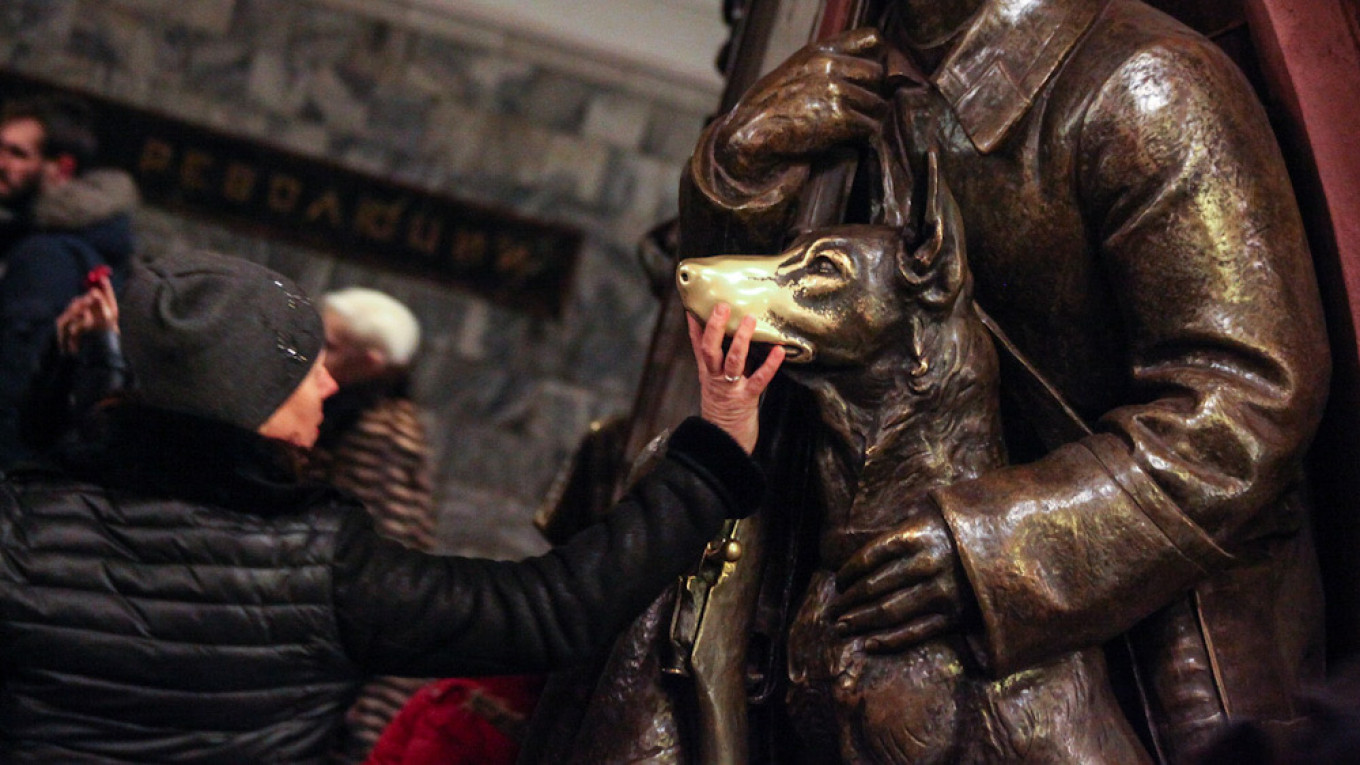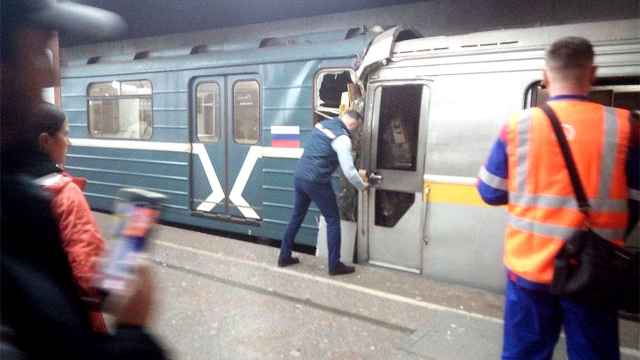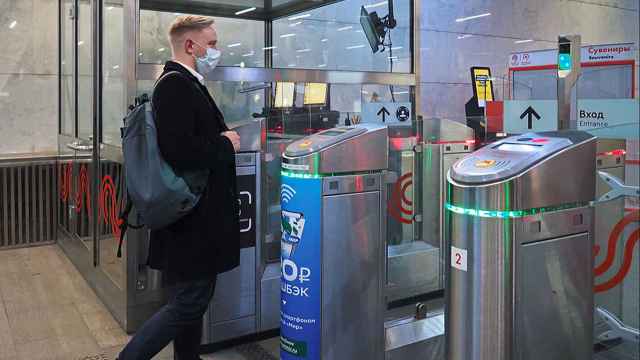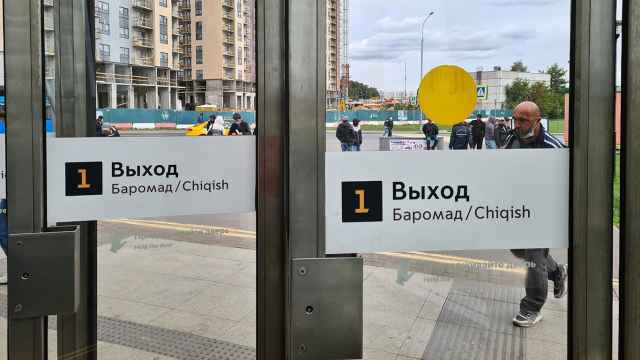Touching the Soviet-era sculptures of people and animals in the Ploshchad Revolyutsii station near Red Square is a longstanding good-luck ritual for the millions of people who ride the Moscow metro every day.
But Moscow transport authorities are now calling on passengers to keep their hands to themselves — as all the years of touching and rubbing have finally taken a toll on the bronze figures.
“After many years of making your dreams a reality, the sculptures now need help themselves — many of them have been worn down and lost their authentic look,” the Moscow Transport Department wrote on its official Telegram channel Sunday.
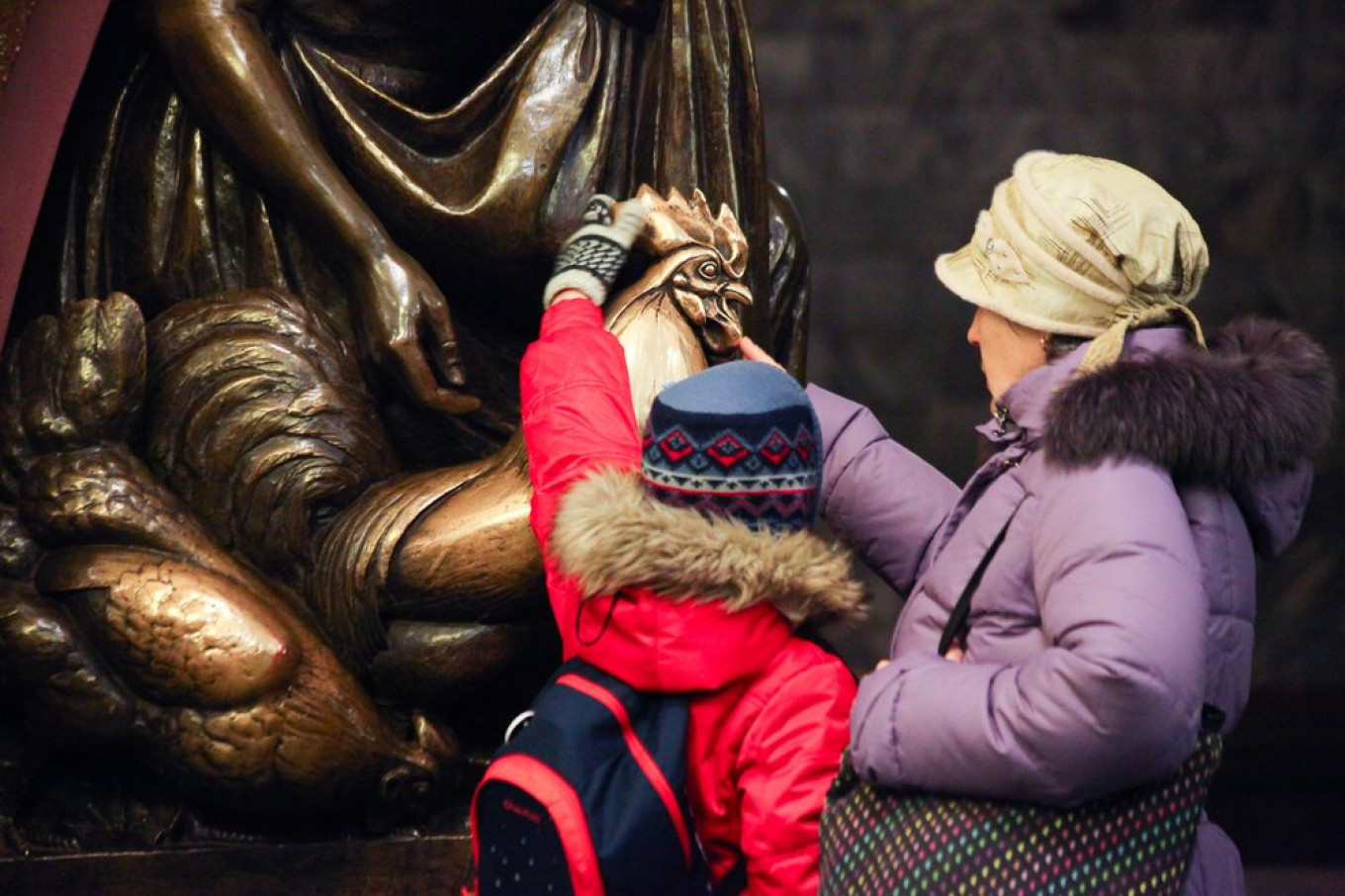
The tradition of rubbing statues at Ploshchad Revolyutsii originated back in 1938, when engineering students at Moscow’s Bauman Technical University would rub their report cards against the nose of Ingus, the border guard sculpture’s dog, in hopes of nailing their exams. The practice caught on with Muscovites and tourists alike, and the dog’s nose now shines from the constant touching.
An air of magic surrounds the station’s other sculptures, as well. Touching a female student’s bronze shoe is believed to bring luck in love and marriage, flags held by a naval lookout are the key to having a good day, and a Mauser pistol held by a secret police officer brings financial success.
The most mystical of the 76 bronze sculptures created by Matvey Manizer, however, is the hen keeper and her rooster. While some are convinced of the bird’s magic ability to fatten paychecks, others believe him to be an embodiment of evil things to come.
Moscow authorities claim that, from now on, the sculptures would try their best to read passengers’ thoughts — merely making a wish near a statue would be as effective as touching it and would also “preserve the magic for future generations.”
“We promise that the statues will be grateful and all your wishes will come true,” the Transport Department assured skeptical passengers.
Experienced statue-rubbers have not yet confirmed whether telepathic communication with the statues has proven to be as effective as a physical touch.
A Message from The Moscow Times:
Dear readers,
We are facing unprecedented challenges. Russia's Prosecutor General's Office has designated The Moscow Times as an "undesirable" organization, criminalizing our work and putting our staff at risk of prosecution. This follows our earlier unjust labeling as a "foreign agent."
These actions are direct attempts to silence independent journalism in Russia. The authorities claim our work "discredits the decisions of the Russian leadership." We see things differently: we strive to provide accurate, unbiased reporting on Russia.
We, the journalists of The Moscow Times, refuse to be silenced. But to continue our work, we need your help.
Your support, no matter how small, makes a world of difference. If you can, please support us monthly starting from just $2. It's quick to set up, and every contribution makes a significant impact.
By supporting The Moscow Times, you're defending open, independent journalism in the face of repression. Thank you for standing with us.
Remind me later.


